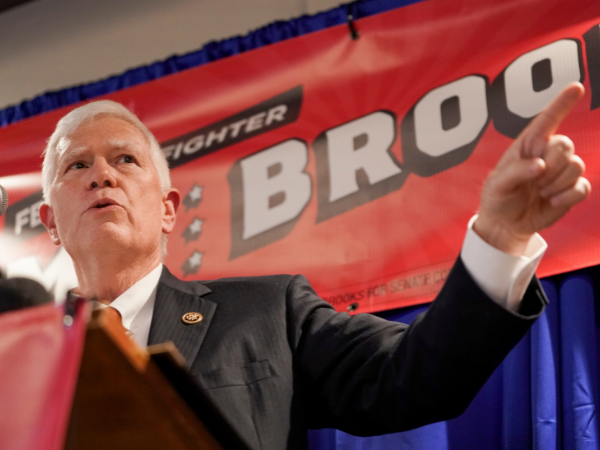US refusal to defend Republican lawmaker in Capitol riot a signal to Trump
The U.S. Justice Department’s refusal to defend a Republican congressman accused in a civil lawsuit of helping to incite the Jan. 6 attack on the Capitol could hamper former President Donald Trump’s legal defense in the same case, experts said.
The department late Tuesday told a federal judge it had declined a request by Representative Morris “Mo” Brooks to grant him immunity by covering him under the Westfall Act, which shields federal employees from being sued for their words or actions in the course of their employment.
Experts said the move appeared to send a message to Trump, a co-defendant in the case, ruling out immunity when it warned that inciting an attack on Congress “is not within the scope of employment of a Representative – or any federal employee.”
Donald Ayer, a senior Justice Department official in the Republican administrations of Presidents Ronald Reagan and George H.W. Bush, said: “The government’s filing sends a clear message. No leader in our government is acting within the scope of his employment when he acts to subvert the free and fair election by getting people to go up and riot and interfere.”
“The leaders who perpetrated these travesties are personally responsible for their actions.” he added. A spokesman for Brooks could not be immediately reached for comment.

U.S. Rep. Mo Brooks (R-AL) makes an announcement in Huntsville, Alabama, U.S. March 22, 2021. REUTERS/Elijah Nouvelage/File Photo
Brooks and Trump are co-defendants in a lawsuit by Democratic Representative Eric Swalwell that accuses them of inciting people during a Jan. 6 rally to attack the Capitol and stop Congress from certifying President Joe Biden’s election victory.
Trump is a defendant in two other similar lawsuits, one filed by Democratic Representative Bennie Thompson and another on behalf of two U.S. Capitol police officers.
Trump has so far not publicly requested Justice Department protection in the case, nor has his attorney Jesse Binnall said whether he intends to ask the department to take a position.
In a statement, Binnall said: “The Supreme Court has been clear that presidents cannot be sued for actions that are related to their duties of office. Addressing Americans about congressional action is a quintessential presidential duty.”
The Justice Department declined to comment.
The department riled some Democrats with a pair of recent decisions that seemed to shield Trump or members of his administration, though legal experts said the moves were intended to protect the office of the presidency, not its former occupant.
Trump’s primary legal defense in the Swalwell suit has not rested on the Westfall Act but on a legal doctrine that argues the separation of powers in the U.S. Constitution broadly grants the president immunity during his time in office.
“Rousing and controversial speeches are a key function of the presidency. That is especially true when, as is the case here, the President is advocating for or against congressional action,” his lawyer wrote in a May 24 filing.
Related Articles
In a footnote, the lawyer added: “Even if former President Trump is not covered by absolute immunity, as a governmental actor, the claims against him are also foreclosed by immunity under the Westfall Act.”
Attorney Anne Tindall of the advocacy group Protect Democracy said the department’s filing contains a lot of signs that are “bad news for Trump.”
“Trump’s role is even more limited than Brooks’ is,” said Tindall, who is representing two Capitol Police officers in a separate lawsuit alleging Trump incited the riot.
“Brooks has a role in the certification. He has a vote in Congress. DOJ concluded that the conduct at issue in the litigation is not sufficiently related to his vote,” Tindall said. “Here Trump has no role at all.”
(Reporting by Sarah N. Lynch; Editing by Scott Malone and Cynthia Osterman)

